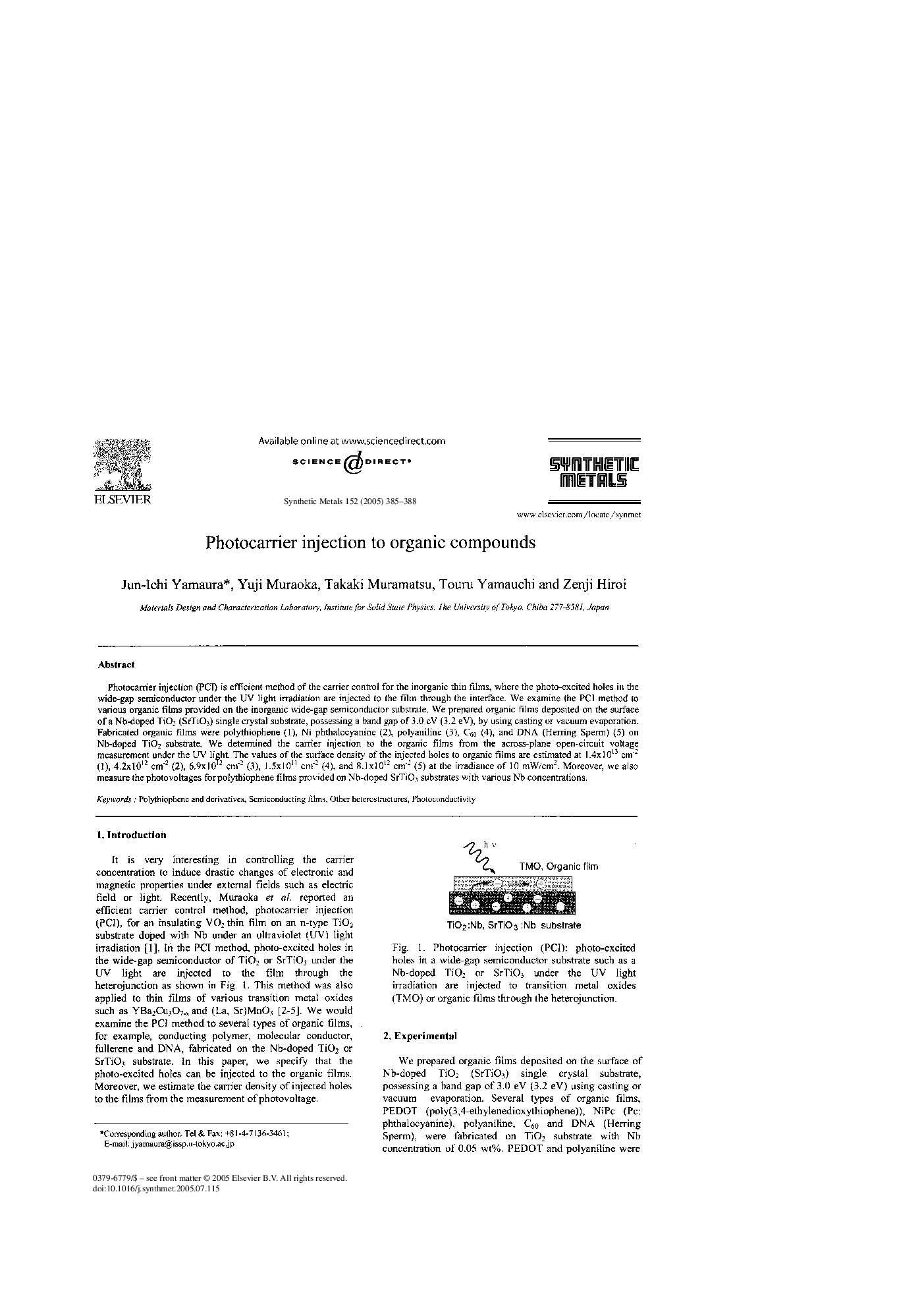| Article ID | Journal | Published Year | Pages | File Type |
|---|---|---|---|---|
| 9776483 | Synthetic Metals | 2005 | 4 Pages |
Abstract
Photocarrier injection (PCI) is efficient method of the carrier control for the inorganic thin films, where the photo-excited holes in the wide-gap semiconductor under the UV light irradiation are injected to the film through the interface. We examine the PCI method to various organic films provided on the inorganic wide-gap semiconductor substrate. We prepared organic films deposited on the surface of a Nb-doped TiO2 (SrTiO3) single crystal substrate, possessing a band gap of 3.0Â eV (3.2Â eV), by using casting or vacuum evaporation. Fabricated organic films were polythiophene (1), Ni phthalocyanine (2), polyaniline (3), C60 (4), and DNA (Herring Sperm) (5) on Nb-doped TiO2 substrate. We determined the carrier injection to the organic films from the across-plane open-circuit voltage measurement under the UV light. The values of the surface density of the injected holes to organic films are estimated at 1.4Â ÃÂ 1013Â cmâ2 (1), 4.2Â ÃÂ 1012Â cmâ2 (2), 6.9Â ÃÂ 1012Â cmâ2 (3), 1.5Â ÃÂ 1011Â cmâ2 (4), and 8.1Â ÃÂ 1012Â cmâ2 (5) at the irradiance of 10Â mW/cm2. Moreover, we also measure the photovoltages for polythiophene films provided on Nb-doped SrTiO3 substrates with various Nb concentrations.
Related Topics
Physical Sciences and Engineering
Materials Science
Biomaterials
Authors
Jun-Ichi Yamaura, Yuji Muraoka, Takaki Muramatsu, Touru Yamauchi, Zenji Hiroi,
